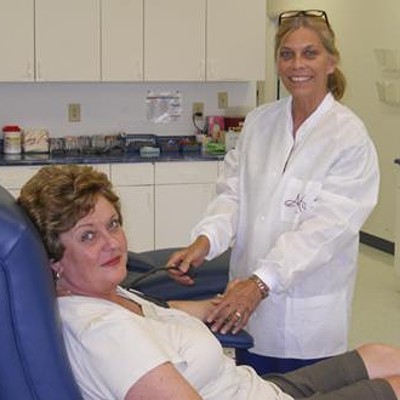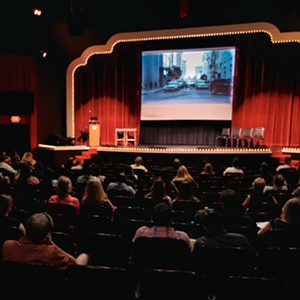Since I rely on print media, the internet and the radio for news reports, I've not seen much of the video coverage about this summer storm called "health care reform" that's been sweeping the country since July. No presidential press conferences, no Sunday morning deconstruction by elected officials or former White House staffers now serving as professors at Harvard's Kennedy School of Government, and only one video news report of the many town hall meeting shout downs across the US.
But thanks to radio--commercial and public--it's been impossible to miss the noise of it all, the yelling and the shouting. Capturing "in the moment" screaming matches on the radio seems the audio equivalent of recording a car wreck on video. It gets a lot of airplay, and every time it runs, we can't help but pay attention.
The raucousness resembles a painful-to-watch, way-off Broadway experimental theater production. As the curtain rises, the audience sees a cast of dozens, all in suits and ties, standing in several concentric circles on stage.
An actor at center stage begins speaking, and within seconds, all the other actors begin to talk as well. None of them pauses to listen to the lines spoken by the other characters. Each actor has a script that he's memorized, and that's what he's reciting from. When he gets to the end of his lines he starts again at the beginning and repeats the whole speech.
As the simultaneous talking progresses, each actor speaks louder and louder. Within minutes the volume of voices fills the theater in a deafening incomprehensible mush. If an audience member near the stage tunes in on the lines spoken by any single actor, sometimes those lines can be heard about the din, but for most of the crowd the noise is so loud that soon it's impossible for anyone in the audience to do that.
Eventually, the audience stops listening. None of the actors has been listening since the show began.
At the height of the cacophony, the stage goes black. The show is over. The lights come up, and the crowd leaves the theater for dinner or a martini. Supper conversations ensue across the city as audience members talk to their dates about what they think they just heard, or saw, and what, if anything, it all meant.
Or maybe they just shrug and rehash the latest episode of "Mad Men."
As an audience member near the back of the theater, while I like to come across as attentive and informed, my first reaction is to stick my fingers in my ears and sing "Na na na na na na na," when these noisy news reports come on the radio--like I did in kindergarten when I heard something unpleasant.
For starters, I'm not sure about the theme of the play that we're watching. Is it "health care reform" or "health insurance reform?" These seem related, but not synonymous.
Are we talking about how to have more people live healthier lives? Or are we talking about how to continue our current way of dealing with health issues but provide ways for more people to be able to afford better care?
Kind of like talking about "home maintenance" and "home improvement loans" as if they are interchangeable. At some point, one affects the other, but they are separate problems.
Must they be addressed simultaneously? And, after accumulating decades of deferred maintenance on this health care structure, is a slap-dash repair job really the best plan?
Over the weekend I hunched over the laptop and scrolled through HR 3200, the bill rolled out in July in the House of Representatives that's called "America's Affordable Health Choices Act of 2009.''
The former bureaucrat in me was able to give it about 45 minutes of superficial scanning before I figuratively stuck my fingers in my ears and started humming.
At 1,017 pages, HR 3200 seems too lengthy. Too long to be navigable. Too long to have been put together in such a short period of time, especially given the scope of the intent of the bill, which is "To provide affordable, quality health care for all Americans and reduce the growth in health care spending, and for other purposes," according to Page 1 of the document.
But 1,017 pages also seems too short to be able to impact all the things that HR 3200 is intended to address-Medicaid and Medicare, rural health clinics, durable medical equipment, nursing homes, individual private insurance, fraud and waste reduction, nursing education, drug discounts, school clinics, small business employee coverage.
I have a few questions and a few worries. I don't have any answers and I don't know where to go for them. And I'm resigned to the likelihood that this health care "theater of the absurd" performance may be running for quite a while before anyone rewrites the script.























